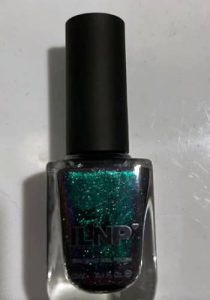When it comes to probiotics, the Seed DS-01 Daily Synbiotic stands out in the wellness world.
It’s marketed as a next-level gut health supplement, blending prebiotics and probiotics in a sleek, scientifically engineered capsule.
People are drawn to it for its promise of digestive balance, skin health, and even immune support.
I decided to try it because I wanted more than a generic probiotic.
I wanted something I could actually feel working.
My Experience with Seed DS-01 Daily Synbiotic
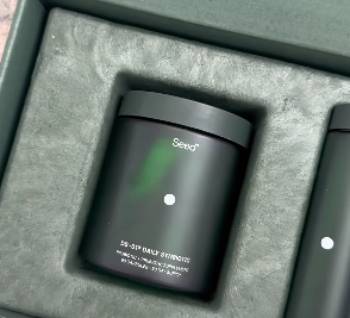
From the first moment I opened the minimalist green bottle, I could tell Seed wasn’t playing in the same space as typical supplement brands.
The capsules looked refined — nothing oversized or chalky — and the instructions were very clear.
They stressed starting slow, which I appreciated.
I began with one capsule a day for the first three days, as recommended.
By the end of the first week, my digestion was noticeably different.
The uncomfortable bloating I’d grown used to after most meals was reduced.
It wasn’t a magical overnight change, but there was a distinct sense that my gut was finally working with me instead of against me.
Around week two, I started taking two capsules daily.
This is where I really noticed a shift.
Bowel movements became more regular — something I had been chasing for years.
There was also a surprising benefit: my skin looked clearer and felt smoother.
I had read that gut health could influence skin, but experiencing it firsthand was convincing.
Energy levels also seemed more consistent throughout the day.
Instead of that heavy, sluggish feeling after lunch, I felt lighter and more alert.
One important thing I learned early on was that hydration made a big difference.
On days when I didn’t drink enough water, the results weren’t as strong.
Another tip from my experience: be patient.
This isn’t a supplement that slaps you in the face with results overnight.
It’s more like slowly turning up the volume on your body’s balance until you realize everything is working more smoothly.
Of course, it wasn’t all perfect.
The price tag is higher than many probiotics, and while the quality justifies it for some, I know it’s not accessible for everyone.
I also had mild digestive rumbling in the first week, but it subsided quickly.
Still, in my personal trial, the pros outweighed the cons — though I can see how not everyone would feel the same way, especially if budget is a concern.
Who Should Avoid Seed DS-01 Daily Synbiotic
While I personally experienced benefits, this supplement is not a universal fit.
The first group that should be cautious is anyone with severe digestive conditions like Crohn’s disease or ulcerative colitis without medical guidance.
The powerful combination of strains could cause unpredictable reactions in sensitive guts.
If you’re immunocompromised, speak to your doctor first.
Even though probiotics are generally safe, your body’s defenses may respond differently.
Another group is those with a very tight budget.
Seed DS-01 is one of the pricier options on the market, and while the quality is high, you might not want to commit to a $50+ monthly supplement if you’re not absolutely certain it meets your needs.
Also, if you’re already on a probiotic that’s working well for you, switching just for curiosity could lead to unnecessary disruption.
Your gut might need to re-adjust, and you could experience temporary discomfort without any added benefit.
Pregnant and breastfeeding individuals should also consult a healthcare professional before starting.
While there’s no strong evidence of harm, it’s better to err on the side of caution during those stages.
Finally, if you dislike swallowing capsules or prefer chewables or powders, Seed may not be the right choice.
The capsules are sleek but still fairly large.
Knowing whether you fit into any of these categories before buying can save you time, money, and potential discomfort — and help you choose a product that works best for your body and lifestyle.
Maintenance Tips for Seed DS-01 Daily Synbiotic
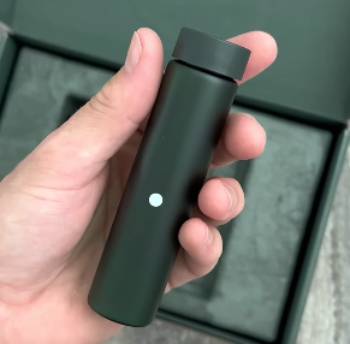
- Start Slowly: Begin with one capsule a day for three days before moving to the full dose to help your gut adjust.
- Stay Hydrated: Drink plenty of water daily to maximize digestive and skin benefits.
- Consistency Matters: Take your capsules at the same time each day for best results.
- Store Properly: Keep in a cool, dry place away from direct sunlight to maintain potency.
- Pair with Healthy Diet: Support the probiotics with a fiber-rich diet to enhance effectiveness.
- Avoid Skipping: Missing doses can slow progress and reduce benefits.
- Monitor Your Body: Pay attention to changes in digestion, energy, and skin to track progress.
- Travel Ready: Keep capsules in their original container to protect from moisture and heat.
- Don’t Overdose: Stick to recommended dosages — more isn’t better.
- Be Patient: Full benefits often develop over several weeks, so allow time before judging results.
Pros and Cons of Seed DS-01 Daily Synbiotic
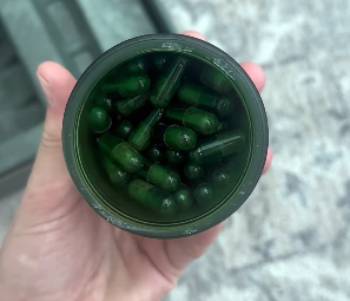
Pros:
- Advanced Delivery System: The capsule-in-capsule technology protects the probiotics from stomach acid, ensuring they reach the colon intact, which increases effectiveness.
- Clinically Studied Strains: With 24 scientifically researched strains, it offers targeted benefits for digestion, skin health, and immune function.
- No Refrigeration Needed: Shelf-stable design means you can travel or store them anywhere without losing potency.
- Improved Regularity: Helps maintain consistent bowel movements without harsh laxative effects, promoting comfort.
- Skin Benefits: Supports clearer, healthier-looking skin through improved gut health.
Reduced Bloating: Noticeable relief from post-meal bloating for many users, contributing to daily comfort. - Immune Support: Formulated to help strengthen the body’s natural defenses.
- Sustainable Packaging: Comes in eco-friendly refillable glass jars, reducing plastic waste.
- Transparent Testing: Third-party tested for quality, purity, and potency, providing peace of mind.
- Titration Guidance: Offers a smart starting plan to help your gut adjust, minimizing discomfort.
Cons:
- High Price Point: Significantly more expensive than many over-the-counter probiotics, which may limit accessibility.
- Subscription Model: Primarily sold through subscription, which some may find inconvenient or restrictive.
- Adjustment Period: Initial days can include digestive rumbling or minor discomfort before the body adapts.
- Not Instant: Results may take weeks to notice, requiring patience and consistency.
- Individual Variability: Benefits may not be equally dramatic for every user, depending on their gut health starting point.
- Large Capsules: While easy for some, others may find the size slightly challenging to swallow.
- No Flavor Option: Only available in capsule form, which may not appeal to those who prefer chewable or powder supplements.
- Requires Daily Commitment: Missing doses can reduce effectiveness, so consistent use is essential.
- Limited Retail Availability: Mostly available online, so not a quick in-store purchase.
- Not for All Budgets: The ongoing cost may not be sustainable for everyone seeking probiotics.
Seed DS-01 Daily Synbiotic Vs. Other Brands
- Seed DS-01 Daily Synbiotic Vs. Culturelle Digestive Daily
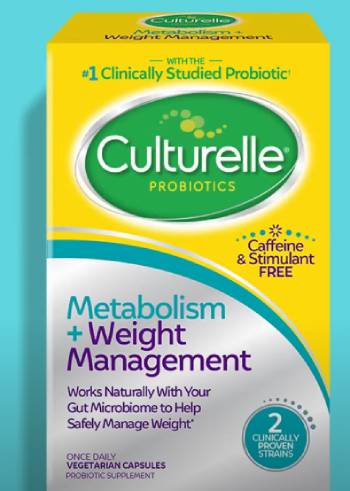
Culturelle is a well-known brand that focuses primarily on Lactobacillus GG, a single probiotic strain supported by research for digestive health.
While effective for basic gut support, it doesn’t match Seed’s multi-strain diversity or capsule technology.
Seed targets both digestive and whole-body benefits, whereas Culturelle is more specialized.
For someone seeking comprehensive results beyond digestion, Seed offers more coverage, though at a higher price.
Culturelle remains a solid entry-level option, especially for those who want simplicity and affordability without the layered benefits Seed aims to deliver.
- Seed DS-01 Daily Synbiotic Vs. Align Probiotic
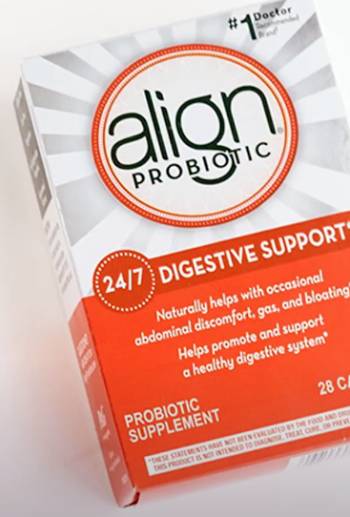
Align is recognized for its patented Bifidobacterium 35624 strain, proven to help with occasional bloating and digestive discomfort.
It’s widely available in pharmacies and generally less expensive than Seed.
However, Align’s single-strain formula means its scope is narrower.
Seed provides a broad-spectrum approach with 24 strains, aiming for benefits that extend beyond digestion to skin and immune health.
For targeted, IBS-related relief, Align might be a match.
But for those wanting a more expansive wellness approach, Seed takes the lead despite the cost.
- Seed DS-01 Daily Synbiotic Vs. Garden of Life RAW Probiotics
Garden of Life offers a raw, whole-food-based probiotic that also includes vitamins and minerals.
Its appeal lies in its natural, unprocessed approach, but it requires refrigeration, which can be inconvenient.
Seed’s shelf-stable design and encapsulation technology make it more travel-friendly and possibly more reliable in delivering bacteria alive to the colon.
Garden of Life may suit those drawn to raw nutrition, but Seed offers a more controlled and consistent formulation.
- Seed DS-01 Daily Synbiotic Vs. Ritual Synbiotic+
Ritual’s Synbiotic+ blends prebiotics, probiotics, and postbiotics in a single capsule.
It’s a sleek, modern option aimed at convenience and clean labeling.
However, Ritual contains fewer strains and a lower AFU count compared to Seed, which means it may not deliver the same strain diversity benefits.
For those prioritizing simplicity, Ritual is attractive.
For those chasing maximum diversity and targeted formulation, Seed edges ahead.
- Seed DS-01 Daily Synbiotic Vs. Biogaia ProTectis
Biogaia is best known for its patented Lactobacillus reuteri strain, often used for infant colic but also marketed to adults for general digestive health.
It’s a niche probiotic with strong results for certain conditions but limited scope overall.
Seed’s multi-strain approach covers a broader range of wellness needs, though it costs more.
Biogaia could be better for very specific digestive issues, while Seed is a comprehensive daily option.
Frequently Asked Questions (FAQs)
Some users may experience mild digestive changes such as gas, bloating, or rumbling in the first week. These usually subside as your body adjusts.
Yes, it’s formulated to support gut, skin, and immune health through clinically studied strains and advanced delivery technology.
Most users notice changes within 2–4 weeks, though timing can vary based on individual gut health.
AG1 is a greens supplement with added probiotics, while Seed is a dedicated synbiotic. The better choice depends on whether you want full probiotic support or a greens-focused formula.
Final Thoughts
Seed DS-01 Daily Synbiotic is a premium, science-backed option for those who want more than a basic probiotic.
It’s not the cheapest, and it may require patience, but the benefits can extend well beyond digestion.
For those ready to invest in a more advanced gut health supplement, it’s a contender worth serious consideration.


